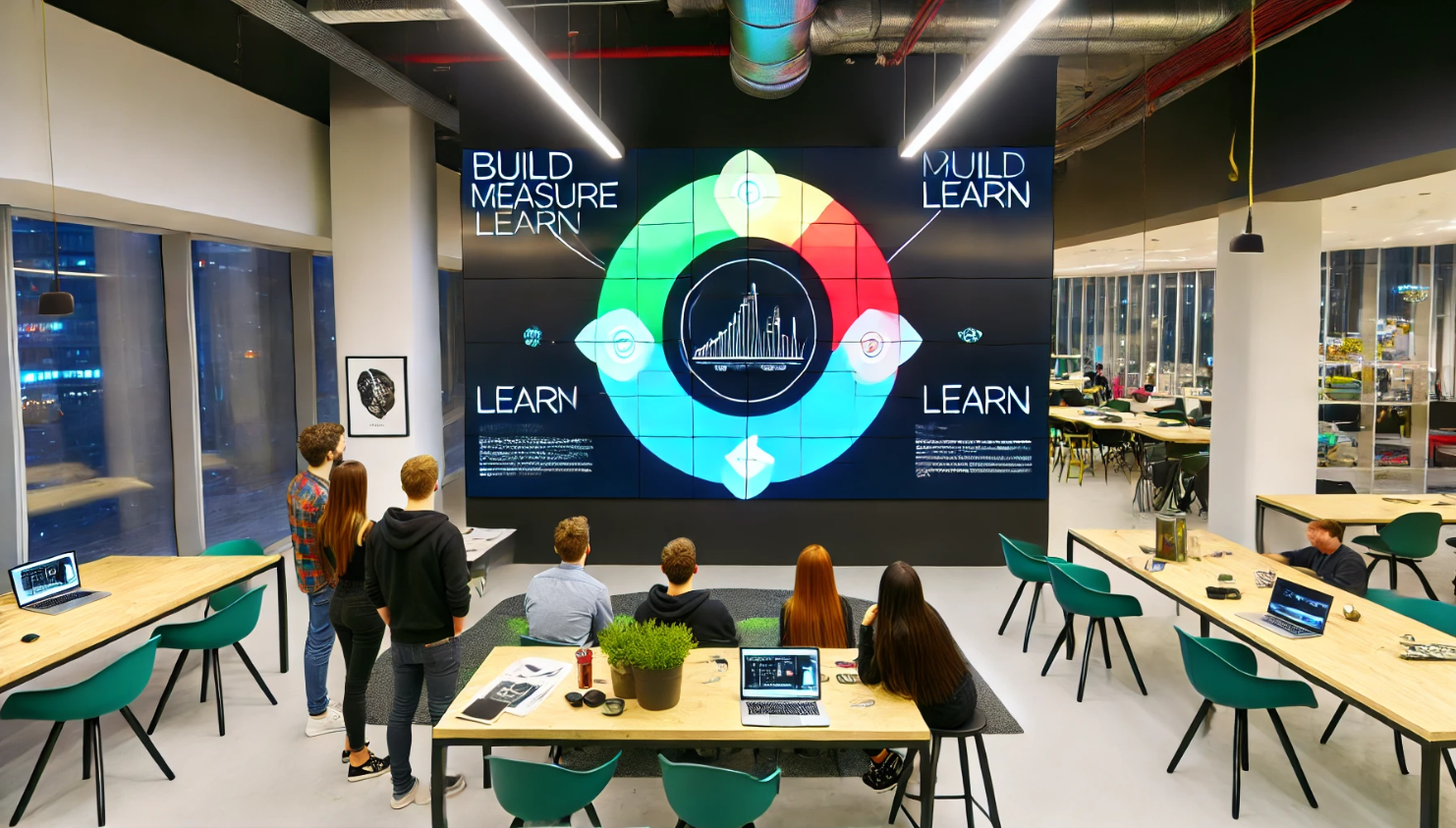In an increasingly competitive business landscape, entrepreneurs and established companies alike are turning to innovative approaches to stay ahead. One methodology that has gained significant traction is the Lean Startup Business Model. This approach, pioneered by Eric Ries, has revolutionized how companies develop products, validate ideas, and scale their operations.
At its core, the Lean Startup methodology emphasizes rapid experimentation, customer feedback, and iterative product development. By focusing on these key principles, businesses can minimize waste, reduce risk, and accelerate growth. Let’s dive deep into the essential components of this game-changing approach and explore how it’s reshaping the entrepreneurial landscape.
The Build-Measure-Learn Feedback Loop
Central to the Lean Startup methodology is the Build-Measure-Learn feedback loop. This iterative process allows companies to quickly test hypotheses, gather data, and make informed decisions about their product or service.
- Build: Create a Minimum Viable Product (MVP) that addresses the core problem you’re trying to solve.
- Measure: Collect data on how customers interact with and respond to your MVP.
- Learn: Analyze the data to gain insights and make decisions about your next steps.

By continuously cycling through this process, companies can rapidly iterate and improve their offerings based on real-world feedback. This approach stands in stark contrast to traditional business models that often rely on lengthy development cycles and assumptions about customer needs.
The Power of the Minimum Viable Product (MVP)
One of the most transformative concepts introduced by the Lean Startup methodology is the Minimum Viable Product. An MVP is the simplest version of a product that can be released to customers for feedback and validation.
The key benefits of developing an MVP include:
- Reduced time to market
- Lower development costs
- Early customer feedback
- Validation of core assumptions
- Faster iteration and improvement

By focusing on creating an MVP, companies can avoid the pitfall of over-engineering products that may not resonate with their target market. Instead, they can quickly test their ideas and pivot if necessary, saving valuable time and resources.
Customer Development: The Heart of Lean Startup
At the core of the Lean Startup approach is a relentless focus on customer needs and preferences. Customer development involves actively engaging with potential users to understand their pain points, validate assumptions, and refine product offerings.
Key steps in the customer development process include:
- Customer discovery: Identifying and understanding your target market
- Customer validation: Testing your product or service with early adopters
- Customer creation: Scaling your customer base
- Company building: Transitioning from a startup to a fully-fledged company

By prioritizing customer development, companies can ensure that they’re building products that truly meet market needs, rather than creating solutions in search of a problem.
Pivot or Persevere: Making Data-Driven Decisions
One of the most challenging aspects of entrepreneurship is knowing when to stay the course and when to change direction. The Lean Startup methodology provides a framework for making these critical decisions based on data and customer feedback.
A pivot involves making a fundamental change to one or more aspects of your business model. This could include:
- Changing your target market
- Modifying your product features
- Adjusting your pricing strategy
- Altering your distribution channels

The decision to pivot or persevere should be based on careful analysis of your metrics and customer feedback. By embracing this data-driven approach, companies can make more informed decisions about their strategic direction.
Lean Startup in Practice: Success Stories and Lessons Learned
Numerous companies have successfully implemented the Lean Startup methodology to achieve rapid growth and market success. Let’s examine a few notable examples:
- Dropbox: The file-sharing giant started with a simple MVP – a video demonstrating how their product would work. This allowed them to validate customer interest before investing heavily in development.
- Airbnb: The company began by renting out air mattresses in their apartment, gradually refining their offering based on user feedback and market demand.
- Zappos: The online shoe retailer initially tested their concept by purchasing shoes from local stores and shipping them to customers, only building their inventory once they validated demand.

These success stories highlight the power of starting small, iterating quickly, and scaling based on validated learning.
Integrating Lean Startup with Other Methodologies
As the business landscape evolves, many companies are finding ways to integrate Lean Startup principles with other methodologies to create hybrid approaches. Some popular combinations include:
- Lean Startup + Agile: Combining rapid experimentation with iterative development cycles
- Lean Startup + Design Thinking: Merging customer-centric design with data-driven decision making
- Lean Startup + Six Sigma: Integrating process improvement techniques with lean principles

By blending these approaches, companies can create tailored strategies that leverage the strengths of each methodology while addressing their unique challenges.
Lean Startup Tools and Technologies
To effectively implement the Lean Startup methodology, companies can leverage a variety of tools and technologies. Some essential resources include:
- Customer Relationship Management (CRM) systems for tracking customer interactions and feedback
- Analytics platforms for measuring key performance indicators
- A/B testing tools for running experiments and validating hypotheses
- Project management software for coordinating lean startup initiatives
- Prototyping tools for quickly creating and iterating on MVPs

By utilizing these tools, companies can streamline their lean startup processes and make more informed decisions based on real-time data.
The Future of Lean Startup: Emerging Trends and Opportunities
As technology continues to evolve, new opportunities are emerging for companies to leverage the Lean Startup methodology in innovative ways. Some key trends to watch include:
- Artificial Intelligence and Machine Learning: Using AI to analyze customer data and automate aspects of the build-measure-learn loop
- Blockchain Technology: Exploring new business models and value propositions enabled by decentralized systems
- Sustainability and Corporate Social Responsibility: Applying lean principles to create more environmentally and socially responsible businesses

As these trends continue to shape the business landscape, companies that embrace the Lean Startup methodology will be well-positioned to adapt and thrive.
Conclusion: Embracing the Lean Startup Revolution
The Lean Startup Business Model Approach has fundamentally changed how companies approach product development, market validation, and scaling. By embracing rapid experimentation, customer-centricity, and data-driven decision-making, businesses can minimize risk and maximize their chances of success in an increasingly competitive landscape.
As you consider implementing the Lean Startup methodology in your ventures, remember that the key to success lies in continuous learning and adaptation. Embrace the build-measure-learn loop, focus on creating value for your customers, and be prepared to pivot when the data demands it.
By following these principles and leveraging the tools and technologies available, you’ll be well-equipped to navigate the challenges of entrepreneurship and build a thriving, sustainable business. Whether you’re a first-time founder or an established executive, the Lean Startup approach offers a powerful framework for innovation and growth in the modern business world.

As you embark on your lean startup journey, consider partnering with a reputable pitch deck firm to help you effectively communicate your vision and strategy to potential investors and stakeholders. With the right approach and support, you can turn your lean startup dreams into reality.



